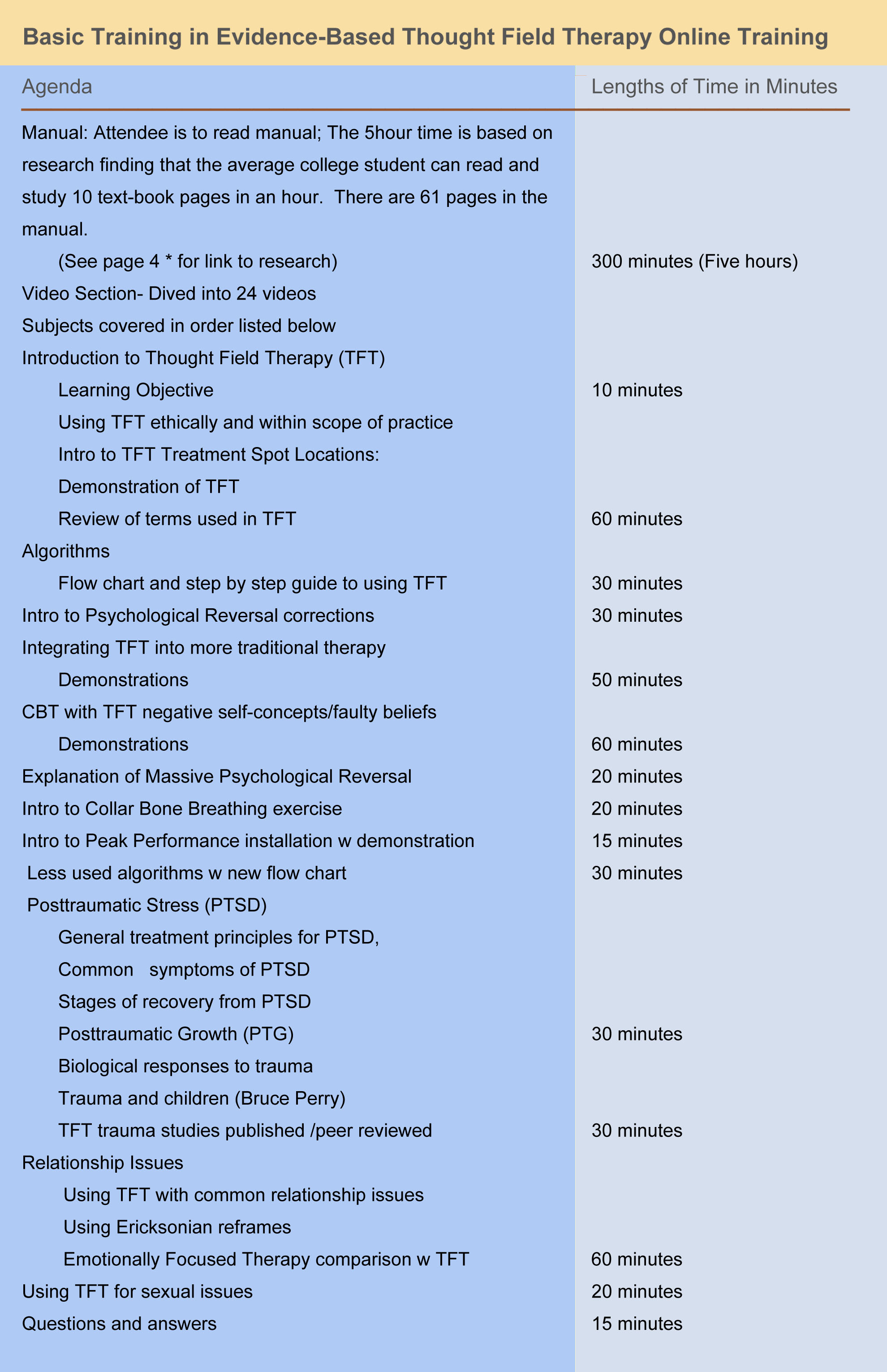

Seeing a psychiatrist will undoubtedly cost more than seeing a psychologist or therapist due to education and training. Telehealth can be advantageous in these circumstances. Locating providers in rural areas may be more difficult, so people may find themselves covering the cost of travel and the cost of services.
#Who developed thought field therapy professional#
Other factors that might influence the cost of therapy include geographical location and the type of professional you are seeing.

Group therapy can be an effective low-cost option depending on the concern. An Employee Assistance Program (EAP), if your company offers this, can potentially cover a certain number of sessions.įor people without insurance, some therapists offer a sliding fee scale or low-cost therapy, meaning the price you pay for a session is based on your income. People with health insurance may be able to receive therapy at a lower cost. The good news is that depending on what’s available to you, there may be options. He said he overcame those fears by learning to disregard his wooziness and keep busy with other activities.Though it's an investment, therapy can be costly. The athletic child and Boy Scout became fearful of hospitals and blood, and the smell of ether could make him faint. He wrote or co-wrote 17 books, published more than 500 articles and received honours for his work including the Albert Lasker Award for Clinical Medical Research in 2006, the Heinz Award for the Human Condition in 2001, and the Sarnat Award from the Institute of Medicine.Īmerican Psychologist magazine in 1982 named Beck one of the 10 most influential psychotherapists ever.Ī native of Providence, Rhode Island, and the third son of middle-class Russian Jewish immigrants, Beck’s first exercises in cognitive therapy were on himself, after a childhood hospitalisation at eight. He published much of his work in his own journal, Cognitive Therapy and Research, partly because other mental health professionals disregarded his findings. Some psychologists called cognitive therapy superficial and little more than a morale booster, but it became required training for psychiatry residents.īeck always responded to critics with data from his research. Besides depression, it has been used to treat conditions including bulimia, panic attacks, social phobia, obsessive-compulsive disorder and drug abuse.īeck’s pragmatic view of psychotherapy had its sceptics. He found that results endured long after therapy was finished, as patients learned to confront those thoughts on their own.Ĭognitive therapy sessions follow a strict format, which always include setting goals for the session and homework assignments. He touted the idea with an anti-Freudian maxim: “There’s more to the surface than meets the eye.”īeck discovered that patients who learn to recognise the faulty logic of their negative automatic thoughts – such as, “I’ll always be a failure” or “no one likes me” – could learn to overcome their fears and think more rationally, which diminished their anxiety and improved their mood. Unlike Freudian psychoanalysis, which delves into a patient’s childhood and searches for hidden internal conflicts, cognitive therapy says turning around a self-disparaging inner monologue is key to alleviating many psychological problems. He developed the treatment after finding that his depressed patients frequently experienced distorted negative ideas – he dubbed them “automatic thoughts”.


 0 kommentar(er)
0 kommentar(er)
